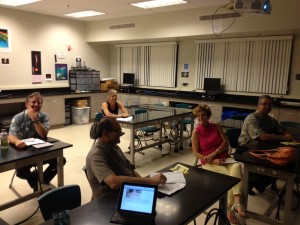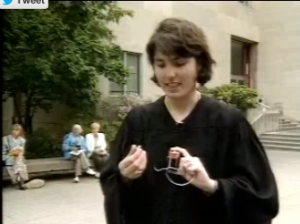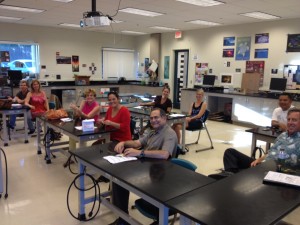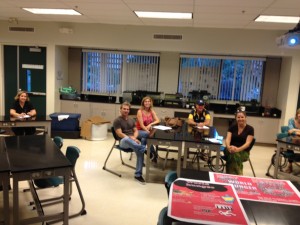MPX Parent night – a summary
*** caveat – this is a different post as it is a reflection of what I shared At our open parent night at MPI this evening***
So, the goal of parent night is to give parents an opportunity to meet the teacher, better understand how they are working with their student in the courses they are assigned, and the hopefully bridge a conversation that includes the critical triad of teacher, parent, and student.
Here is the information that I laid out that I felt was specific to our program as well as my own personal passions around the work we are going to do this year.
I start showing the brief clip from the classic “minds of their own” which was part of the private universe project in Science from 1994. Maybe you have probably seen some version of this, but in order to better understand the ways that we teach and learn science, this research group went up to Harvard University graduates and asked them relatively simple questions about how plants grow, how electricity works, why the moon go through phases, information that we take for granted that should be part of a good standard education. The specific clip that I showed tonight was from episode three which focuses on hands-on minds-on science, specifically in physical science. In the video clip you see below (from minutes 3 to about 7) they hand a dozen Harvard graduates a battery, a lightbulb, and the wire and ask if they can get the light bulb to light. What I think is most illustrative in this video is how they start to try to explain why they can’t make it happen and this unpacking unveils much of their naïve thinking about electricity and what is happening in a circuit.
When the parents came into the room, I had them grab one wire, one battery, and one lightbulb so that they could try this activity to test they are thinking as well. Much confusion and a little illumination ensued.
Unfortunately, I cannot embed the link, as it is not an embeddable video, but the link to the page is here:
I use this clip as a way to bridge why science and mathematics need to be taught not as bodies of knowledge, but as a series of carefully scripted investigations about the natural world. In doing science, the habits of mind of what makes a scientist singularly powerful in viewing the world begin to get built, and begins to displace naive views of the world with more expert views. It is a highly constructivist way to learn science, and is the only way I believe that is effective to build true transferable knowledge of mathematics and science.
As we move into projects this year that center around topics like energy conservation, stewardship of the environment, citizenship and our role in the community, transportation and ways to efficiently move people with the least amount of environmental impact, we need the foundational knowledge on these critical areas in physical science. The way to learn these, is not to have them lectured at us, but to uncover them the same way that scientists did initially: by conducting well defined and controlled experiments that lead to a more complete model of how systems behave.
Our content areas of physics and algebra 2 still need to map to the core content that was developed by the math and science departments at MPI. These are posted as PDF documents in our course page on edline – so that parent, teacher, and student have a common sense of what content we need to make sure is embedded in our work throughout this year.
It was worth noting that the science is based on the upcoming implementation of the next generation science standards, which focus on science as a process more than a body of knowledge anyhow – perfectly aligned with the way we see learning in our program. More info here:
I also mentioned that both Laura my 10th grade colleague and I maintain blogs which contain our work in thinking around MPX 10. Obviously you have found mine if you’re reading this, Laura’s is linked on the right side of my blog page, as well as our MPX page here: http://www.midpac.edu/academics/mpx/
I did review the challenge of the weekly structure that needs to be done due to the MPX 10 STEM class not being able to have students grouped together for both blocks. Essentially, on short work days (like monday) we will do brief investigations on an interesting science topic. Twice a week, we will do project work during our science 90 minute blocks, once a week we will do a discrete math lesson during one of our mathematics blocks, and on Fridays, the students will have an opportunity for “Google time” which will allow them to develop and implement a project that is rich and meaningful of their own design.
We also talked about how we have a high degree of reflective work we do – and that includes students maintaining a personal blog on our Google school platform using Blogger. Parents will be given a letter that will explain and allow them to agree to this electronic means of sharing their work.
Since we only had 10 minutes, that was as far as we could allow time-wise. All in all, it was a great night to connect with our parents and be excited about the work we’re going to towards this year.




